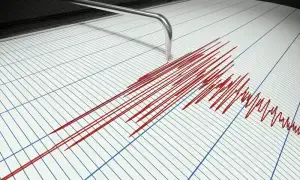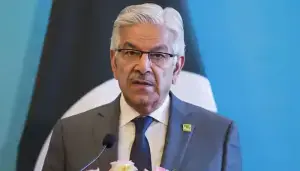Proposed increase in gas tariff not to affect 57% consumers: energy minister
4 min readCaretaker Energy Minister Muhammad Ali said on Thursday the proposed increase in gas tariff would not affect 57 per cent of consumers across the country, rather it would “help control and end” the ever-increasing circular debt of the petroleum sector.
“It will be a big achievement,” he said in a media briefing on the gas prices’ revision along with interim Information and Broadcasting Minister Murtaza Solangi.
The energy minister said the increase in gas prices had been approved by the Economic Coordination Committee and would be presented before the federal cabinet for the final nod.
The commodity price for 5.7 million gas consumers – out of around a total of 10 million – had not been increased, he added.
Read: Hybrid geyser prices in Karachi: market survey
“After the proposed increase, there will be no surge in the circular debt of the energy sector, which stood at Rs2.1 trillion in the recent past.”
Ali went on to add that the fixed rate (line rent) for the 5.7 million gas consumers had been increased from Rs10 to Rs400, adding the new tariff would “marginally affect” the protected gas consumers.
He was of the view that most of the people living in rural areas had no access to gas and were using liquefied petroleum gas (LPG) and wood as sources of fuel.
“Approximately 30% of the country’s population has access to gas facility while this commodity is not available for 70% of the population and they are using LPG and wood as fuel,” he added.
Ali further explained that in terms of consumption, 57% of households primarily use 31% of the total gas and account for 11% of payments. He said that the upper class, which constituted 3% of gas connections, used 17% of the gas, leading to a 39% billing rate. The gas rate had not been increased for “Tandoor (local bread makers)” across the country to facilitate the people, he added.
The minister said gas prices for the compressed natural gas (CNG) and commercial connections had also been increased. But the gas price for the fertiliser and power sectors had not been increased as the hike in the rate for this sector directly affected the farmers of the country, he added.
He stated that the gas price for the export-oriented industries had been brought to the level of regional countries, adding a uniform gas tariff had been put in place for the old and new industrial gas connections.
“The gas tariff difference between the north and south regions for the industrial sector has also been narrowed,” he said, adding that the gas rate had been increased for non-export industries.
Also, read this
Pakistan assures IMF of taxing agriculture, construction sectors
Gas shortage exposes fragile Pakistani economies to more pain
When asked, Ali replied there was no plan to lift the ban on new gas connections due to the non-availability of the gas. “Sooner or later we will have to shift on LPG due to non-availability of the natural gas in the country [as existing reserves are depleting at the rate of around 9% annually,” he added.
He said around the world natural gas was being provided to the power sector for the generation of cheaper electricity.
In response to another question, he said that there were bright chances for international companies to invest in oil and gas exploration activities in Pakistan, following the increase in gas tariff.
Ali lamented that it was unfortunate from the last many years; no exploration policy framework had been made. “We are working on exploration policy framework” he added.
While responding to a query about the gas supply situation during the peak winter season (November to February), he said the gas supply for domestic consumers would be available for eight hours like the previous year.
The energy minister said that due to circular debts and revolving loans, the payments were not being made to many companies which made them wind up their business from the country.
He brushed aside the impression that the new gas tariff would primarily benefit the wealthy segments of society, emphasising the broader impact on various sectors.
For the latest news, follow us on Twitter @Aaj_Urdu. We are also on Facebook, Instagram and YouTube.

























Comments are closed on this story.